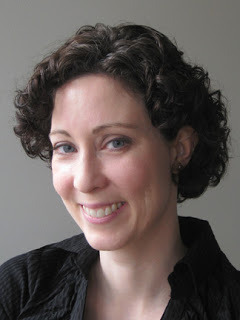Melanie Card's Take on Plotting and Pantsing
 I'm so excited to host fellow Entangled Publishing author Melanie Cardon the blog today! She's got a great post, plus don't miss her yummy excerpt, down below!
I'm so excited to host fellow Entangled Publishing author Melanie Cardon the blog today! She's got a great post, plus don't miss her yummy excerpt, down below! Thanks Laura for inviting me to be your guest. I'm so excited to be here. Today I'm chatting about my writing process. Which actually isn't quite true, I'm really chatting about my process right now and the process I used while writing my debut novel WARD AGAINST DEATH.
There's always this question going around writers' group about are you a pantser or a plotter? Is one better than the other? More efficient? More open to creativity? And the real answer is that there isn't one answer.
[image error] For me each book is different (I tried my hand at a number of books before I sold. Some hopefully will never see the light of day, others maybe we'll see on shelves soon.) When I started writing WARD AGAINST DEATH, I was a pantser.
A pantser is somebody who writes by the seat of her pants. She doesn't have a plot laid out beforehand, she just looks at the blank page sets fingers to the keyboard and starts writing.
A plotter on the other hand is somebody who plots the book out before writing.
I had set myself the goal of trying to write a first draft in a month (a fun challenge just to see how far I could get, for those familiar with NaNoWriMo, an unofficial one because it wasn't November) One month later, I had most of a book... and it was a complete mess. Which is kind of what's expected when you do a book-in-a-month challenge. But I had missed some major plot holes and that required me to toss 100 pages and rewrite a large section of the book.
In response to that, I tried plotting. My next writing attempt I sat down and did a detailed plot of the book. Figured out the characters' motivations, what each scene would look like, where they'd peak and fall, etc. That I think was the hardest book I've ever written and the one that I think needs the most work (I should probably just shove it in a box, put it under my bed, and consider it an unsuccessful experiment.)
But what I learned through the process is I, like many writers, fall somewhere on the continuum of pantser vs. plotter. There is no one way to write a book and as I continue to write books, I discover that each book develops in different ways. Sometimes I just need the four or five significant events and can fill in the rest. Other times, the book just flows and I'm almost done before I realize I need to figure out where the story is going.
There are still times when I plot the book out, but I don't think I'll ever do as detailed a plot outline as that failed experiment. For me, my characters have a tendency to do something or say something I hadn't intended them to do which changes the direction of the plot (usually for the better).
I'm sure many a writer has blogged about pantsing vs. plotting. And, just as every writer is different, there will be as many answers to the question, what type of writer are you? In the case of writing, I'm a fan of do whatever works. And I learned by writing Ward Against Death things that work for me and don't work for me.
Thanks for joining me today. I think the biggest thing I learned from the pantsing vs. plotting adventure was not to think of myself as one thing or the other. Some books I'm more pantser than plotter, some books more plotter than pantser. Do whatever works and have fun writing.
So, what's your take on the great pantsing vs. plotting debate?
Connect with Melanie: Facebook / Twitter @melaniecard / Goodreads / MelanieCard.com
Melanie has always been drawn to story telling and can't remember a time when she wasn't creating a story in her head. Her early stories were adventures with fairies and dragons and sword swinging princesses.
Today she continues to spin tales of magic in lands near and far, while her cat sits on the edge of her desk and supervises. When she's not writing, you can find her pretending to be other people with her local community theatre groups.
[image error]WARD AGAINST DEATH: CHRONICLES OF A RELUCTANT NECROMANCER - Book OneTwenty-year-old Ward de'Ath expected this to be a simple job—bring a nobleman's daughter back from the dead for fifteen minutes, let her family say good-bye, and launch his fledgling career as a necromancer. Goddess knows he can't be a surgeon—the Quayestri already branded him a criminal for trying—so bringing people back from the dead it is.Mmm, what an excerpt:
But when Ward wakes the beautiful Celia Carlyle, he gets more than he bargained for. Insistent that she's been murdered, Celia begs Ward to keep her alive and help her find justice. By the time she drags him out her bedroom window and into the sewers, Ward can't bring himself to break his damned physician's Oath and desert her.
However, nothing is as it seems—including Celia. One second, she's treating Ward like sewage, the next she's kissing him. And for a nobleman's daughter, she sure has a lot of enemies. If he could just convince his heart to give up on the infuriating beauty, he might get out of this alive…
He looked at her with his brown eyes, and she knew she'd found her moment. She set her cup aside and knelt at his feet, clasping his hand between hers.
"You're right. This is our first good lead and we should follow it. But it can wait a moment. We're celebrating you. And you haven't finished your drink."
"That's because you topped it up."
She smiled and sat back on her heels. "Because I plan on getting you drunk and taking advantage of you."
He laughed and took a long swig from his cup. "No, really, I should—"
"No." She skimmed her hands up his thighs to his waist and leaned in, brushing her nose against his. "Really."
He gasped and flushed. The strength of her advance was risky, but she no longer had time to play it slow. She knew he found her attractive. Now was her only opportunity.
"Celia." His voice wavered on an uneven breath. "I..."
She ran her hands up his chest, along his neck, and cupped his jaw between her palms.
If she closed her eyes, she could imagine Ward was the innocent, honest man she'd believed.
Beneath her fingers, she could feel his noble heritage, the chiseled lines of his cheeks and jaw. His betrayal hurt more than she thought possible, and she pressed her lips to his before she could change her mind.
He froze, and his lips trembled under hers. It was too fast, too soon, and she eased back. But he caught the back of her head with his hand and deepened the kiss with a sudden, intense need, sending a shock of pleasure through her.
Celia gasped, caught off guard. She shouldn't have been. When Ward decided to do something, he committed fully to it.
 Thanks for reading, and don't forget to leave Melanie some comment love!Laura
Thanks for reading, and don't forget to leave Melanie some comment love!Laura
Published on August 31, 2011 09:31
No comments have been added yet.



